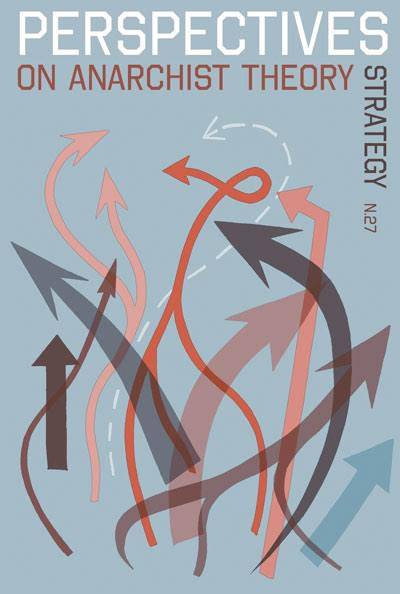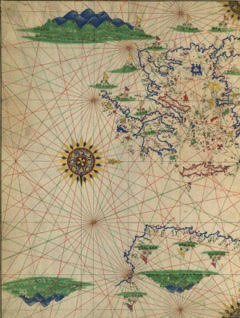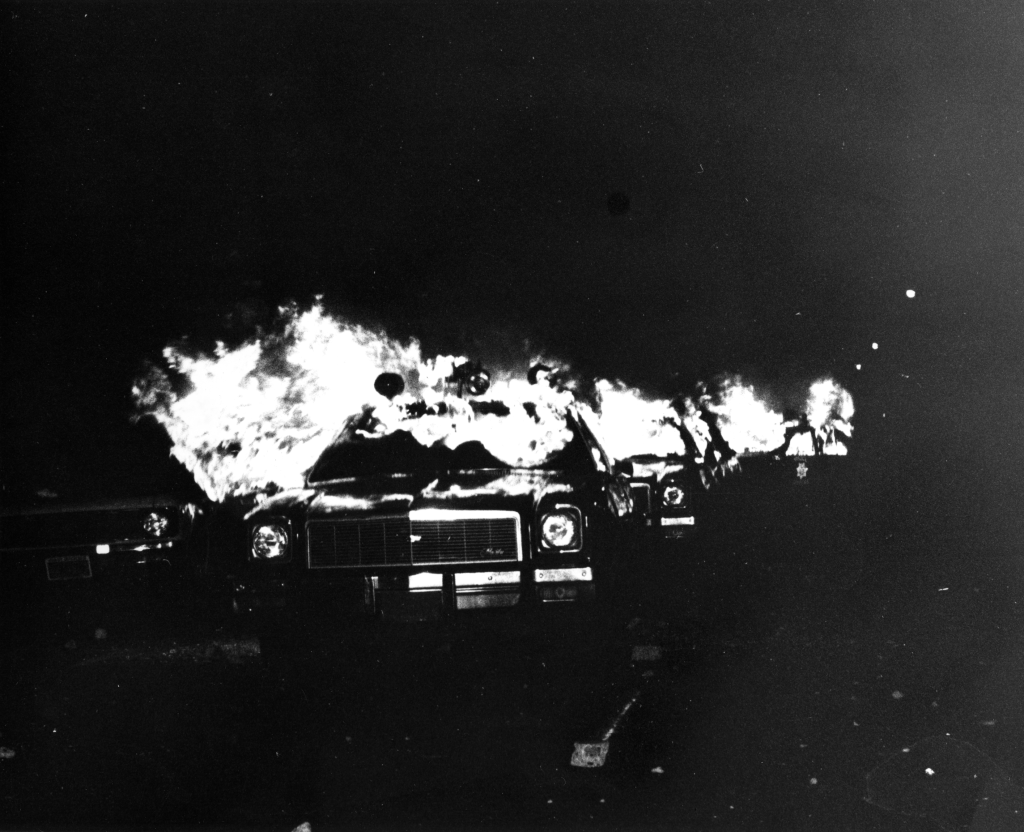
Murray Bookchin was a pivotal, polarizing figure in the post-WWII history of anarchism. He put ecology and democracy on the anarchist agenda in a way that was as novel as it is enduring. As a polemicist, he spent decades at the center of crucial debates about history, strategy, and foundational ideals. Even his critics must acknowledge that he made major contributions to the growth and clarification of the anarchist perspective.
Something shifted in the movement when he died in 2006. For the preceding fifty years, his writings had been a point of reference through which we could clarify our views, even when we disagreed with them, whereas now that he was gone we had to make sense of him. Who was he and how had he lived? These are compelling questions for those who had worked with him and for anyone who wants to understand contemporary anarchism.
Publishing
Hunger Strikes, Dignity and Freedom Amidst the “War on Terror,” by Brooke Reynolds
This piece originally appears in issue N. 28 of Perspectives on Anarchist Theory, available from AK Press.
“I will carry my soul in my hand
/ And throw it in the valleys of death /
It is either a life that makes a friend happy
/ Or a death that makes an enemy angry.” –Abdulrahim Mahmoud, Palestine
“When the will is free and the cause is just, and you embody both, the human is capable of making miracles happen, and no oppressive, tyrannical, murderous regime can harm it” -Ameer Makhoul, Palestine
“Sometimes I sit in the chair and vomit. Nobody says anything. Even if they turned their backs I would understand. I’m looking for humans. All I ask for is basic human rights.” –Emad Hassan, Guantánamo Bay
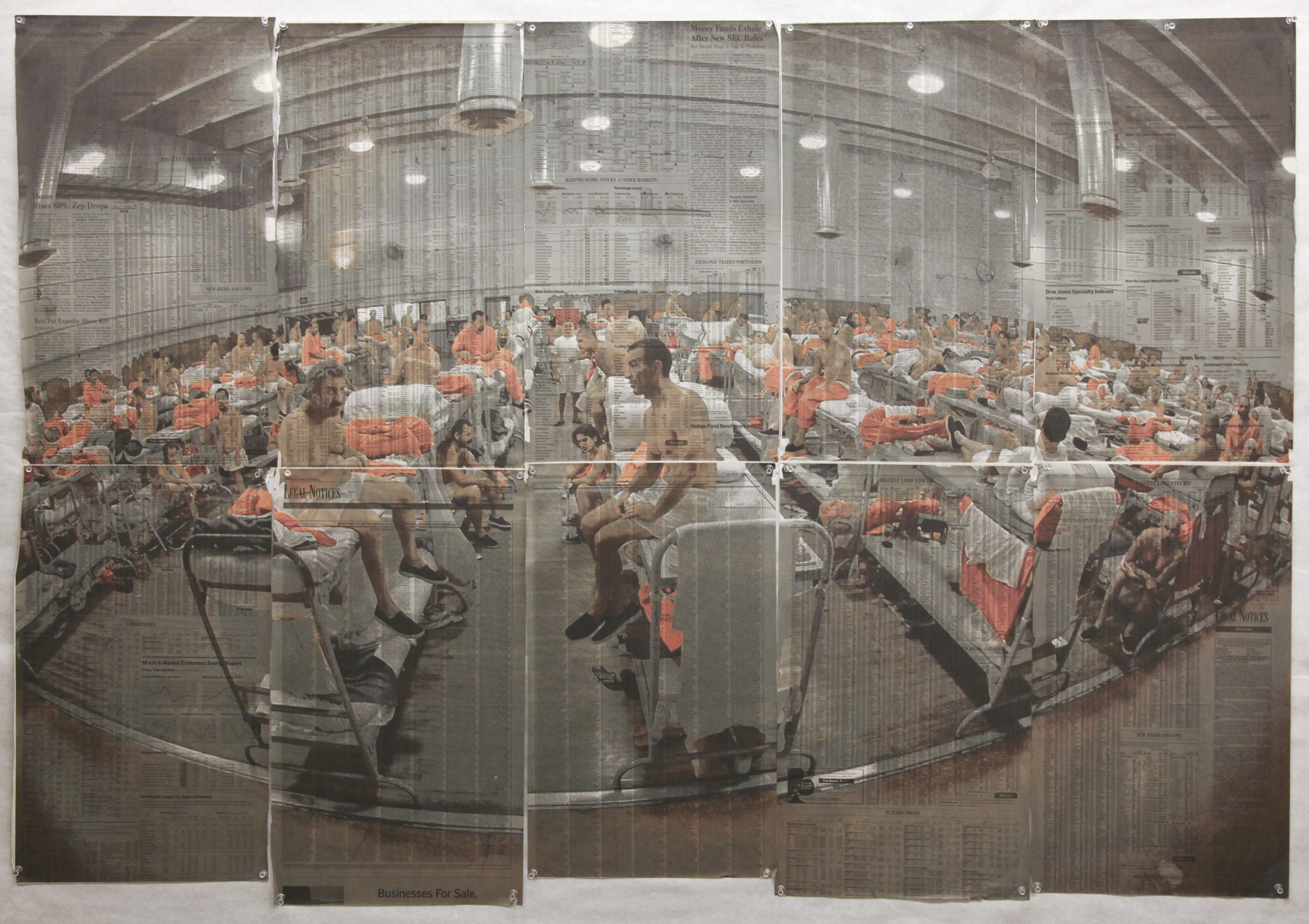
(Photo by Max Collins)
Insurgent Islands: A Continuing Conversation on Anarchism with Principles, by Kevin Van Meter
“Freely Disassociating” appeared in June 2015. Although it was written a year prior, the half dozen Left and radical publications to which it was initially submitted would not print it. Since its publication by Perspectives on Anarchist Theory inquiries and positive responses (such as Scott Campbell’s, on which I have commented upon elsewhere ) have found their way to me either directly or through intermediaries. Of course there was a series of irrational and nonsensical comments online that only served to confirm my claim that there isn’t an “audience that can access arguments and positions outside those with which it already agrees.” And for that matter, the positive responses confirm this as well. What is interesting about those who are generally supportive of my arguments is that they often agree with the analysis of the problems that currently exist in radical movements, but are neither able to completely disassociate from the “tyrannical bitterness” of contemporary radical politics nor to engage with the proposal that anarchism with principles will arise from a political project rather than being proposed a priori.
What I had not fully articulated in the original article is that until there is a counter-pole to current radical movements there cannot be a shift toward creating anarchism with principles. It would violate common sense to suggest that you can decrease X (involvement in radical movements as they are currently composed) and as a result Y (a counter-pole, anarchism with principles) would emerge. Our increasingly ideological anarchism is defined by theoretical practices: the setting of ones own limitations rather than common horizons; obsession with imaginary relations instead of relations between anarchism’s collective imagination and the ability to collectivize them in the world; and there is not a Yes to many, many No’s reversing the call for “One No, Many Yeses.” It is these practices that anarchism with principles seeks to counter. Moreover, and possibly more important, two interrelated problems suggest the need for another passage out of the current malaise. The approach of creating forms of organization, from clandestine cells to non-profits, a priori to the desires and activity that will propel them forward, postulate purpose, set priorities, and provide the content and context in which they will operate is fatal. This is exacerbated by the inability to make a clean break from current radical movements and instead align oneself with the rich, substantive history of revolutionary ideas and practices. Until these three separate issues are properly addressed the preconditions required for anarchism with principles to develop cannot be established. I will take each issue in turn.
Towards a Fatter Insurrection: Introduction to a Revolutionary Body Liberation Movement, by Shane Burley
After Jessica parked, she was too busy juggling her phone and keys to notice the crowd of teenage boys moving toward her vehicle. As she got out she immediately recognized what was happening. It wasn’t the first time. She began walking to the café as … Read more
Towards an Anarchism with Principles: A Response to “Freely Disassociating,” by Scott Campbell
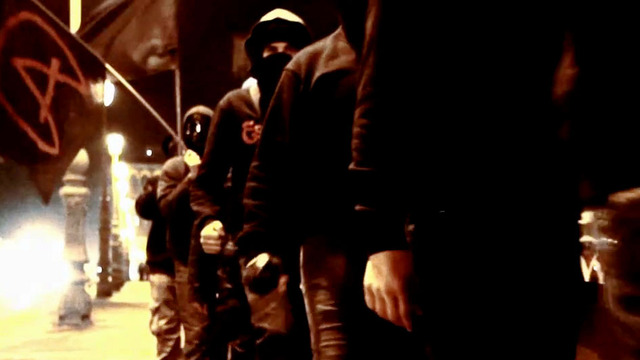
I read with interest Kevin Van Meter’s recent essay, Freely Disassociating: Three Stories on Contemporary Radical Movements published by Perspectives on Anarchist Theory on the Institute for Anarchist Studies website. In it, he discusses the current climate within the anarchist movement, painting a grim picture where increasingly meaningless labels and judgments get tossed about like political hand grenades, shutting down discussion, utilizing guilt-by-association, fomenting an atmosphere of anti-intellectualism and devolving into moralizing-outrage-as-activism. In his third of the three anecdotes he shares, he also elaborates how association with the anarchist movement can lead to unreasonable expectations and standards being placed on an individual. As a result, the radical movement has largely become a void consumed by the loudest voices or the latest controversy, leading people to disassociate from it.
Facing this scenario, Van Meter argues for developing an “anarchism with principles” based in a milieu of “working class, and revolutionary, intellectual culture.” The principles would emerge through dialog, debate, organizing and application in struggle.
Fugitive Flesh: Gender Self-Determination, Queer Abolition, and Trans Resistance, by Eric A. Stanley
We always felt that the police were the real enemy. —Sylvia Rivera
Bright lights shattered the dark anonymity of the dance floor. The flicker warned of the danger of the coming raid. Well experienced, people stopped dancing, changed clothing, removed or applied makeup, and got ready. The police entered, began examining everyone’s IDs, and lined up the trans/gender-non-conforming folks to be “checked” by an officer in the restroom to ensure that they were wearing the legally mandated three pieces of “gender appropriate clothing.” Simultaneously the cops started roughing up people, dragging them out front to the awaiting paddy wag- on. In other words, it was a regular June night out on the town for trans and queer folks in 1969 New York City.
As the legend goes, that night the cops did not receive their payoff or they wanted to remind the patrons of their precarious existence. In the shadows of New York nightlife, the Stonewall Inn, like most other “gay bars,” was owned and run by the mafia, which tended to have the connections within local government and the vice squad to know who to bribe in order to keep the bar raids at a minimum and the cash flowing. As the first few captured queers were forced into the paddy wagon, people hanging around outside the bar began throwing pocket change at the arresting officers; then the bottles started flying and then the bricks. With the majority of the patrons now outside the bar, a crowd of angry trans/queer folks had gathered and forced the police to retreat back into the Stonewall. As their collective fury grew, a few people uprooted a parking meter and used it as a battering ram in hopes of knocking down the bar’s door and escalating the physical confrontation with the cops. A tactical team was called to rescue the vice squad now barricaded inside the Stonewall. They eventually arrived, and the street battle raged for two more nights. In a blast of radical collectivity, trans/gender-non-conforming folks, queers of color, butches, drag queens, hair-fairies, homeless street youth, sex workers, and others took up arms and fought back against the generations of oppression that they were forced to survive.1
On Justice, by Maia Ramnath, Paul Messersmith-Glavin, Sara Rahnoma-Galindo, and Lara Messersmith-Glavin
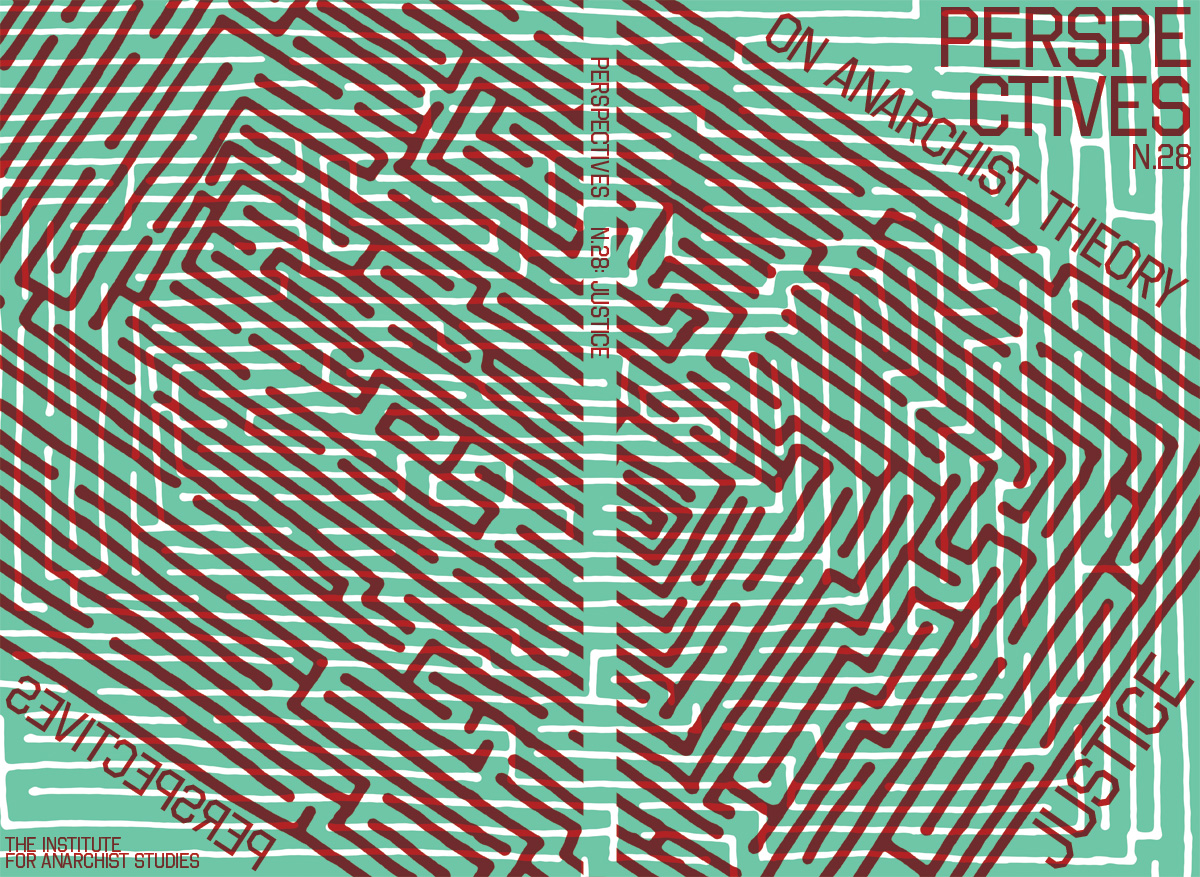
The introduction to the new issue of Perspectives on Anarchist Theory, available from AK Press.
We know what injustice is.
We know instinctively from the time we’re little. Even if she can’t describe it, a child’s protestations of “That’s not fair!” “He cheated!” “She got more than me!” “That’s not FAIR!” signal what she senses on principle.
But what is justice?
Is it a code of ethics, how you’re supposed to treat people on the individual, interpersonal level? Or is it that which promotes conditions for what is fair and equitable on the structural, systemic level?
Freely Disassociating: Three Stories On Contemporary Radical Movements by Kevin Van Meter
I don’t know how to begin because I am no longer sure for whom I am writing. I am concerned that there is no longer an audience to write for.
As a necessary aside: with the disappearance of Left print media and the rise of blogs, there are few places left to publish. Journals with limited circulation or preselected audiences dominate the landscape and the contemporary radical media cannot reach fellow adherents, much less the larger public. Often, it seems that all that remains is a smattering of decrepit publications that speak for the ‘dead institutions’ of the American Left or function as the Daily Worker of a non-existent party — or, and possibly worse, blogs that only run the poorly written position papers of minuscule sects too self-obsessed to see their vanguardism coupled with, and only overshadowed by, their irrelevancy.
New Prologue, 2015 Update to Imperiled Life: Revolution Against Climate Catastrophe, by Javier Sethness-Castro
This is the translation of the new prologue written for the Spanish version of Imperiled Life: Revolution against Climate Catastrophe (IAS/AK Press, 2012), entitled Clima, Ecocidio y Revolución, which is being published by Bloque Libertario/Revuelta Epistémica in Mexico City.
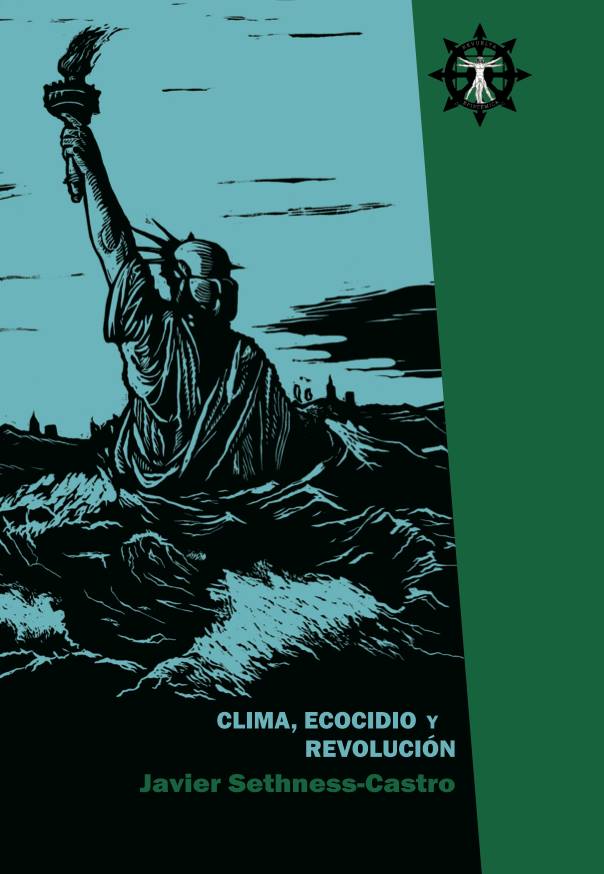
“The revolution is for the sake of life, not death.”[1]
– Herbert Marcuse, The Aesthetic Dimension
I am very glad that this translation is being published in Spanish. It is important that critical writings be shared. Given that Imperiled Life came out nearly three years ago, I see it as necessary here to provide a brief update of some of the most important events that have taken place in these years, particularly with regard to environmental questions—as well as to reflect on the present status of anti-systemic social movements and to make some recommendations for eco-anarchist strategy and praxis.

